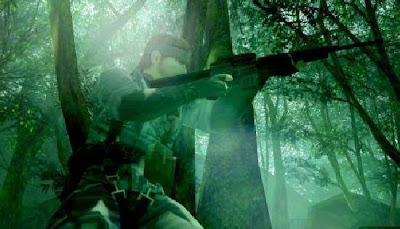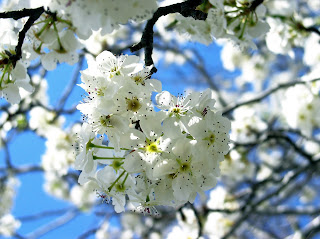 The Taming of the Shrew is a comedy by William Shakespeare, believed to have been written between 1590 and 1594. It was published in 1623.
The Taming of the Shrew is a comedy by William Shakespeare, believed to have been written between 1590 and 1594. It was published in 1623.
The play begins with a framing device, often referred to as the Induction, in which a drunken tinker named Sly is tricked into thinking he is a nobleman by a mischievous Lord. The Lord has a play performed for Sly's amusement, set in Padua with a primary and sub-plot.
The main plot depicts the courtship of Petruchio, a gentleman of Verona, and Katherina, the headstrong, obdurate shrew. Initially, Katherina is an unwilling participant in the relationship, but Petruchio tempers her with various psychological torments — the "taming" — until she is an obedient bride. The sub-plot features a competition between the suitors of Katherina's more tractable sister, Bianca.
The play's apparent misogynistic elements have become the subject of considerable controversy, particularly among modern audiences and readers. It has nevertheless been adapted numerous times for stage, screen, opera, and musical theatre; perhaps the most famous adaptations being Cole Porter's Kiss Me, Kate and the film 10 Things I Hate About You. (Wikapedia,the free encyclopedia)
This comedy by William Shakespeare is probably the best example of
Comedia Del Arte comedy in the English language. It is also another example, joining
Hamlet and
A Midsummer Night's Dream, of a play within a play. It seems that Shakespeare was fascinated by this concept, as he seems to challenge his own skill as a dramatist again and again.
This play combines slapstick comedy with serious, albeit tongue-in-cheek, commentary on the roles of men and women in society. The following is a great example of Shakespeare's love of playing with words to create comedy.
THE TAMING OF THE SHREWAct II, Scene i
PETRUCHIO
Good morrow, Kate; for that's your name, I hear.
KATHARINA
Well have you heard, but something hard of hearing:
They call me Katharina that do talk of me.
PETRUCHIO
You lie, in faith; for you are call'd plain Kate,
And bonny Kate and sometimes Kate the curst;
But Kate, the prettiest Kate in Christendom
Kate of Kate Hall, my super-dainty Kate,
For dainties are all Kates, and therefore, Kate,
Take this of me, Kate of my consolation;
Hearing thy mildness praised in every town,
Thy virtues spoke of, and thy beauty sounded,
Yet not so deeply as to thee belongs,
Myself am moved to woo thee for my wife.
KATHARINA
Moved! in good time: let him that moved you hither
Remove you hence: I knew you at the first
You were a moveable.
PETRUCHIO
Why, what's a moveable?
KATHARINA
A join'd-stool.
PETRUCHIO
Thou hast hit it: come, sit on me.
KATHARINA
Asses are made to bear, and so are you.
PETRUCHIO
Women are made to bear, and so are you.
KATHARINA
No such jade as you, if me you mean.
PETRUCHIO
Alas! good Kate, I will not burden thee;
For, knowing thee to be but young and light--
KATHARINA
Too light for such a swain as you to catch;
And yet as heavy as my weight should be.
PETRUCHIO
Should be! should--buzz!
KATHARINA
Well ta'en, and like a buzzard.
PETRUCHIO
O slow-wing'd turtle! shall a buzzard take thee?
KATHARINA
Ay, for a turtle, as he takes a buzzard.
PETRUCHIO
Come, come, you wasp; i' faith, you are too angry.
KATHARINA
If I be waspish, best beware my sting.
PETRUCHIO
My remedy is then, to pluck it out.
KATHARINA
Ay, if the fool could find it where it lies,
PETRUCHIO
Who knows not where a wasp does
wear his sting? In his tail.
KATHARINA
In his tongue.
PETRUCHIO
Whose tongue?
KATHARINA
Yours, if you talk of tails: and so farewell.
PETRUCHIO
What, with my tongue in your tail? nay, come again,
Good Kate; I am a gentleman.
KATHARINA
That I'll try.
She strikes him
PETRUCHIO
I swear I'll cuff you, if you strike again.
KATHARINA
So may you lose your arms:
If you strike me, you are no gentleman;
And if no gentleman, why then no arms.
PETRUCHIO
A herald, Kate? O, put me in thy books!
KATHARINA
What is your crest? a coxcomb?
PETRUCHIO
A combless cock, so Kate will be my hen.
KATHARINA
No cock of mine; you crow too like a craven.
PETRUCHIO
Nay, come, Kate, come; you must not look so sour.
KATHARINA
It is my fashion, when I see a crab.
PETRUCHIO
Why, here's no crab; and therefore look not sour.
KATHARINA
There is, there is.
PETRUCHIO
Then show it me.
KATHARINA
Had I a glass, I would.
PETRUCHIO
What, you mean my face?
KATHARINA
Well aim'd of such a young one.
PETRUCHIO
Now, by Saint George, I am too young for you.
KATHARINA
Yet you are wither'd.
PETRUCHIO
'Tis with cares.
KATHARINA
I care not.
PETRUCHIO
Nay, hear you, Kate: in sooth you scape not so.
KATHARINA
I chafe you, if I tarry: let me go.
PETRUCHIO
No, not a whit: I find you passing gentle.
'Twas told me you were rough and coy and sullen,
And now I find report a very liar;
For thou are pleasant, gamesome, passing courteous,
But slow in speech, yet sweet as spring-time flowers:
Thou canst not frown, thou canst not look askance,
Nor bite the lip, as angry wenches will,
Nor hast thou pleasure to be cross in talk,
But thou with mildness entertain'st thy wooers,
With gentle conference, soft and affable.
Why does the world report that Kate doth limp?
O slanderous world! Kate like the hazel-twig
Is straight and slender and as brown in hue
As hazel nuts and sweeter than the kernels.
O, let me see thee walk: thou dost not halt.
KATHARINA
Go, fool, and whom thou keep'st command.
PETRUCHIO
Did ever Dian so become a grove
As Kate this chamber with her princely gait?
O, be thou Dian, and let her be Kate;
And then let Kate be chaste and Dian sportful!
KATHARINA
Where did you study all this goodly speech?
PETRUCHIO
It is extempore, from my mother-wit.
KATHARINA
A witty mother! witless else her son.
PETRUCHIO
Am I not wise?
KATHARINA
Yes; keep you warm.
PETRUCHIO
Marry, so I mean, sweet Katharina, in thy bed:
And therefore, setting all this chat aside,
Thus in plain terms: your father hath consented
That you shall be my wife; your dowry 'greed on;
And, Will you, nill you, I will marry you.
Now, Kate, I am a husband for your turn;
For, by this light, whereby I see thy beauty,
Thy beauty, that doth make me like thee well,
Thou must be married to no man but me;
For I am he am born to tame you Kate,
And bring you from a wild Kate to a Kate
Conformable as other household Kates.
Here comes your father: never make denial;
I must and will have Katharina to my wife.































